
Lit Hub’s Most Anticipated Books of 2022
196 Books We're Looking Forward to This Year
And just like that . . . 2021 is over. Like any year, it had its share of disappointments, triumphs, and scandals. There were some good books published and some good literary adaptations to watch. There were great book covers, great book reviews, and even (if we do say so ourselves) a few great pieces published in this very space.
But now it’s 2022, and it’s time to dream it all up again. If there’s anything we’ve learned in the last two years, it’s that nothing is certain—but we can be fairly sure that we’ll get to read a bunch of good books in the new year (though publication dates are even softer than usual these days, so be warned that all of the below is subject to change). Here are the ones we’re most looking forward to—so far.
JANUARY
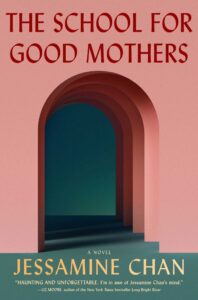
Jessamine Chan, The School for Good Mothers
Simon & Schuster, January 4
At the beginning of this novel, set in a near-future Philadelphia, a mother has a very bad day. She leaves her young daughter alone for two hours, and is reported, observed, and finally sent away to the titular school, a sort of rehab where she and other “bad” mothers must endure what amounts to psychological torture in the name of “training.” This is a chilling dystopian novel about what we expect from mothers (complete self-abnegation) and fathers (something less than that), and the horrifying possibilities of the surveillance state—all of it made all the scarier by its essential plausibility. –Emily Temple, Managing Editor
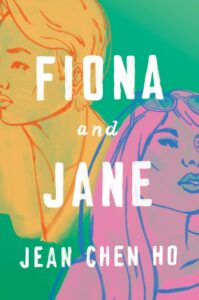
Jean Chen Ho, Fiona and Jane
Viking, January 4
Jean Chen Ho’s debut collection follows two young Taiwanese American women, Fiona Lin and Jane Shen, best friends since elementary school. They see each other through firsts, through early fumbling years and questionable LA bars. From alternating perspectives, we watch as they grow up and away from one another. Fiona moves to New York to help a sick friend, while Jane stays in California and grieves the death of her father. Still, despite the years and the distance, there are some friendships you keep coming back to. There are a lot of metaphors out there to describe the ebb and flow of far-flung friendships like this, but perhaps the most apt is that of a planet orbiting around a star. (Don’t we all have relationships that make us feel like a secondary character at times?) Fiona and Jane so precisely captures a lot that’s left unsaid in strong female friendships: small resentments that build over time, even outright betrayal. It’s a three-dimensional portrayal of their bond—the good and the bad. There is love here, and refreshing honesty, too. If you are lucky, you have had a friend like this in your life, a friend who you might want to share this book with. –Katie Yee, Book Marks Associate Editor
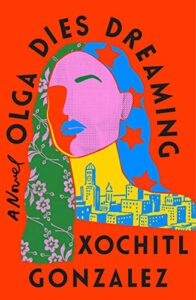
Xochitl Gonzalez, Olga Dies Dreaming
Flatiron, January 4
Olga is a wedding planner for Manhattan’s power brokers; her brother Pedro is a popular congressman representing their gentrifying Latinx Brooklyn neighborhood. They’re publicly successful—until their mother, who abandoned them, returns to their lives. Says Rumaan Alam about Gonzalez’s debut, “The extraordinary accomplishment of Olga Dies Dreaming is in how a familiar-enough tale—a woman seeking love, happiness, and fulfillment in the big city—slowly reveals itself to be something else altogether.” –Walker Caplan, Staff Writer
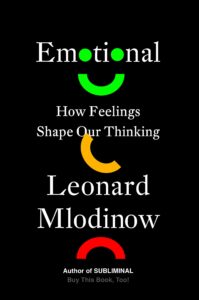
Leonard Mlodinow, Emotional: How Feelings Shape Our Thinking
Pantheon, January 11
An eye-opening investigation into the two sides of the brain (emotional and rational), and how to value and balance both, Emotional explores what happens when we ignore (and accept) our feelings, and positions itself as a guide for how to listen to our bodies and minds in a way that will create the equilibrium we crave. –Julia Hass, Contributing Editor
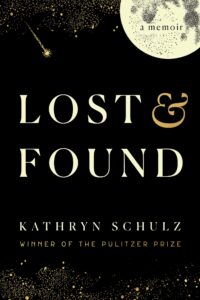
Kathryn Schulz, Lost & Found
Random House, January 11
I’m probably not the only one who first encountered Kathryn Schultz’s work through her Pulitzer Prize–winning New Yorker piece “The Really Big One,” about the earthquake that’s predicted to someday destroy the Pacific Northwest. (If you want to feel Truly Aged, that ran in 2015.) I can’t help but feel that Schultz’s memoir is an extension of that project. Lost & Found intertwines the death of Schultz’s father with the love story of her marriage, exploring the inseparability of grief and joy and “how private happiness can coexist with global catastrophe.” As we enter Pandemic Year Three, this feels like one to read. –Eliza Smith, Audience Development Editor
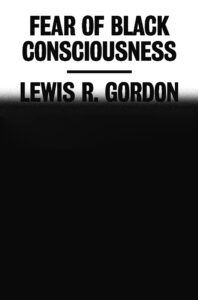
Lewis R. Gordon, Fear of Black Consciousness
Farrar, Straus and Giroux, January 11
Professor Lewis R. Gordon, the Philosophy Department Head at the University of Connecticut, offers an expansive nonfiction work that critically examines the historical roots of “racialized Blackness” and how this school of thought is shaped by the institution of whiteness. Gordon includes personal experiences, striking a fine balance between the searing imprint of memory and the accumulation of learned knowledge. Gordon points out how anti-Blackness is not only a global commodity but a weaponized form of oppression that even members of the Black community can perpetuate through colorism. His take on the Marvel blockbuster Black Panther raises questions about the world’s view of Africa and the legacy of colonial violence. This book is certainly not a light, breezy read, but Gordon’s surprising observations crack open the mind to connect various creative disciplines. –Vanessa Willoughby, Associate Editor
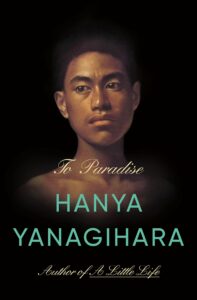
Hanya Yanagihara, To Paradise
Doubleday, January 11
Is it possible for another book to be as completely devastating as A Little Life? Probably not, but Yanagihara’s new novel is another big, bold story of many lives and many loves that promises to be just as engaging (and, let’s be honest, it’ll probably destroy all of us too). Three strands—an alternate 1893 America, 1993 AIDS-devastated Manhattan, and a totalitarian future ridden by plagues—converge in New York in a story of illness, loss, family, and love. –Emily Firetog, Deputy Editor
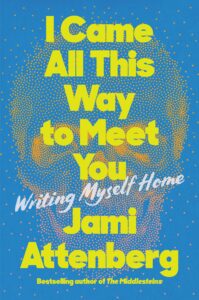
Jami Attenberg, I Came All This Way to Meet You: Writing Myself Home
Ecco, January 11
I was so excited when I heard whisperings that novelist Jami Attenberg was coming out with a memoir in 2022, and that was before I learned she’s writing about some of my favorite topics to spend time with: art and class, friendship and singlehood, and carving out a life that Just Fits. Liz Moore called it “one of the most artistically invigorating books” she’s read in years, which feels like a perfect read for January, no? –ES
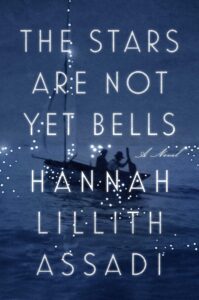
Hannah Lillith Assadi, The Stars Are Not Yet Bells
Riverhead, January 11
National Book Foundation 5 Under 25 honoree Hannah Lillith Assadi’s wonderful first novel, Sonora, was one of the most beautifully wrought debuts of recent years, so I’m tremendously excited to read her sophomore effort. In The Stars Are Not Yet Bells, an elderly woman with Alzheimer’s casts her failing mind back to 1941, when she and her new husband left New York City for a remote island off the coast of Georgia in a doomed quest to find the mysterious blue jewels that were said to lie at the bottom of the ocean. –Dan Sheehan, Book Marks Editor in Chief
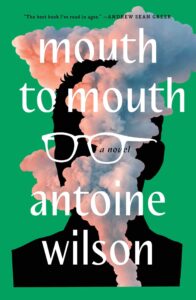
Antoine Wilson, Mouth to Mouth
Avid Reader Press, January 11
When an unnamed narrator runs into a former (half-remembered) college classmate in an airport, the man recounts the story of resuscitating a drowning stranger on a beach, and subsequently becoming obsessed with the life of the man, a renowned art dealer who does not initially reciprocate his savior’s curiosity. The New York Times called it “an enthralling literary puzzle,” which, coupled with the Highsmith echoes, is more than enough to pique my interest. –Jessie Gaynor, Lit Hub Senior Editor
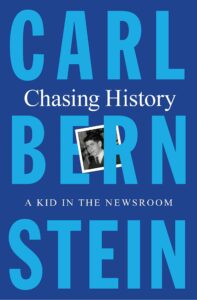
Carl Bernstein, Chasing History: A Kid in the Newsroom
Henry Holt, January 11
Carl Bernstein, of All the President’s Men fame, delivers a memoir of a life spent in some of the most fast-paced newsrooms in the country. As early as 16, Bernstein realized that he didn’t care about high school—he cared about news. He began his career as a copyboy at the Washington Star, was a reporter by 19, then moved on to greater heights. By the time he made it to the Washington Post, he had never gone to college, but had received years of hands-on education in investigative journalism. –JH
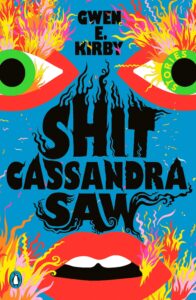
Gwen E. Kirby, Shit Cassandra Saw: Stories
Penguin Books, January 11
You had me at “Margaret Atwood meets Buffy,” but also at the title story, “Shit Cassandra Saw That She Didn’t Tell the Trojans Because at that Point Fuck Them Anyway.” If the rest of this debut collection has the same kind of irreverent energy and self-assured risk-taking, I predict great things. –ET
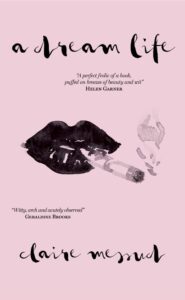
Claire Messud, A Dream Life
Tablo Tales, January 15
The novels of Claire Messud contain sharp edges in just the right places, and glint with an insight that both cuts and beguiles. A Dream Life is the compact, densely packed story of a family dislocated from New York to Sydney, Australia in the 1970s, and the small dramas that ensue. Messud always seems to have perfect command over the characters she creates (and the life that accrues around them), letting them falter through regret and self-deception without punishing them too severely because, after all, like us, they’re all too human. –Jonny Diamond, Editor in Chief
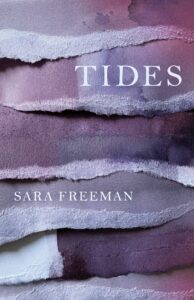
Sara Freeman, Tides
Grove, January 16
Grief is a shapeshifting beast; it takes root in everyone differently. For Mara, it manifests as a desire to run away. After an unspeakable earth-shattering loss, she leaves her family and winds up in a vacation town by the sea with next to nothing. In glinting, spare prose, we can see the outlines of her new life: By day, she searches for food. By night, she drowns out the world by swimming further into the dark. But you can’t block out reality forever. It finds a way of seeping in. In a material sense, the money finally runs out, and she’s forced to find work at a local wine shop. In an emotional sense, she has to face what she’s fled from if she is ever going to pursue an honest relationship with the shop owner. It’s a beautiful portrait of a woman unmoored—and the connections that bring her back. –KY
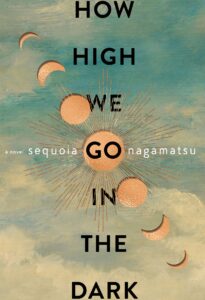
Sequoia Nagamatsu, How High We Go in the Dark
William Morrow, January 18
This impressive, far-reaching debut begins in 2030, as an archaeologist arrives in the melting Arctic Circle, where he finds no trace of his lost daughter, but does find the discovery that entranced her: the remains of an ancient child whose body, it turns out, holds an equally ancient virus. So yes, this is a plague novel, a pandemic novel, one that both honors individual tragedy and asks us to widen our perspective—to look to the future, to the stars. The chapters, which feel like linked short stories, jump decades and centuries, imagining the long-term effects of the Arctic Virus on the world and even the galaxy, without losing touch with the smaller stories of the humans who must contend with it. –ET
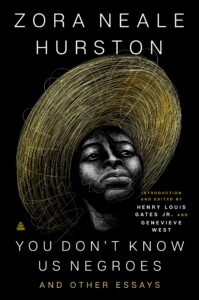
Zora Neale Hurston, You Don’t Know Us Negroes
Amistad, January 18
The rediscovery of any piece of writing by Zora Neale Hurston is a cause for celebration, so this 460-page bumper collection of pieces feels almost like an embarrassment of riches. Spanning more than 35 years, You Don’t Know Us Negroes is the first comprehensive collection of essays, criticism, and articles by the legendary Harlem Renaissance author, covering topics like the birth of the Montgomery bus boycott, the integration of schools, the desegregation of the military, and the trial of Ruby McCollum. This fiery chronicle of Black life in America through the eyes of one of the greatest literary figures of the 20th century is not to be missed. –DS
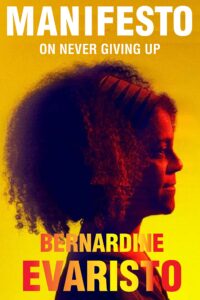
Bernardine Evaristo, Manifesto: On Never Giving Up
Grove, January 18
Bernardine Evaristo made history in 2019 when she became the first Black woman and first Black British person ever to win the Booker prize. That landmark victory brought with it a legion of new fans, all of whom will surely be eager to read her highly anticipated nonfiction debut. Manifesto is a hybrid work—part memoir, part advice manual for struggling creatives—which charts Evaristo’s remarkable life and rebellious career from her early years as one of eight children in a mixed-race family, to her setting up of Britain’s first Black women’s theatre company, to her steadfast determination to write the books that were missing from Britain’s bookshelves. An illuminating and inspirational window into the life of a brilliant artist, determined to make her mark. –DS
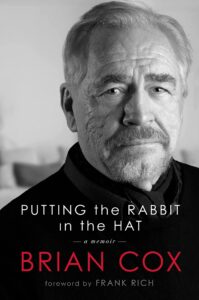
Brian Cox, Putting the Rabbit in the Hat
Grand Central, January 18
If Brian Cox’s lifetime of legendary performances doesn’t convince you to read his memoir, how about the fact that he apparently pulls no punches when it comes to his fellow fame-os, from Johnny Depp (“so overblown, so overrated”) to Quentin Tarantino (“I find his work meretricious”). I’ve been saying it for years: more salty celebrity memoirs! –JG
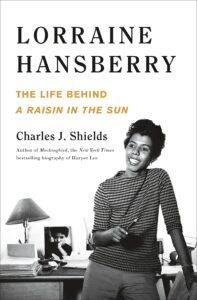
Charles J. Shields, Lorraine Hansberry: The Life Behind A Raisin in the Sun
Henry Holt and Co., January 18
This thoroughly researched biography focuses on the personal life and literary legacy of Lorraine Hansberry. Readers learn about Hansberry’s family background and how her upbringing shaped her politics. Shields doesn’t present a romanticized version of Hansberry’s journey to artistic visionary—the playwright’s flaws and insecurities are shared alongside her strengths. Shields also devotes considerable attention to the literary influences that inspired Hansberry, which included James Baldwin, Sean O’Casey, and Simone de Beauvoir. Hansberry’s romantic relationships with women aren’t treated as a character deficit or fleeting fancy but an undeniable component of her evolution as an actualized person and a creative. Overall, Shields’s portrait of the playwright, who died too soon at the age of 34 from pancreatic cancer, is a rich ode to a trailblazer who refused to conform to society’s expectations of Blackness, queer identity, and the role of a Black author. –VW
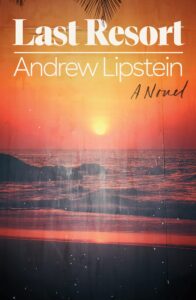
Andrew Lipstein, Last Resort
FSG, January 18
Here’s some literary catnip for you: 27-year-old Caleb, casting about for some purpose in life, has a semi-random encounter with a college acquaintance who tells him a great story—which Caleb then uses as the backbone for a novel. Unfortunately for Caleb, said acquaintance works in publishing, which means he’s caught, so to speak, while the book is still on submission, which results in a welcome and twisted deviation from the usual plagiarism plot. But the question remains: whose novel is it? And what does each of them—the one who lived it, the one who wrote it—deserve? Soon Caleb finds himself in a slow-motion literary-world car crash, but it’s so horribly delicious that the reader (especially the reader who is also a writer) won’t even dream of looking away. –ET
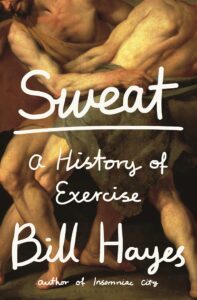
Bill Hayes, Sweat: A History of Exercise
Bloomsbury, January 18
Part history, part travelogue, part memoir, Sweat tackles the rich topic of exercise (distinct from sports), from Hippocrates to Jane Fonda. I’m fascinated by the evolution of exercise culture, and I look forward to learning about how we got from those vibrating belts to HIIT (and maybe whether we can expect a return to the vibrating belts anytime soon, because they seem a lot more fun). –JG
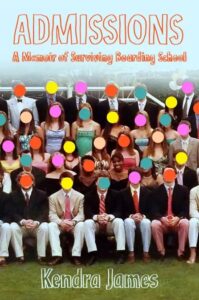
Kendra James, Admissions
Grand Central Publishing, January 18
I went to public school, but for some reason, I’m fascinated by the narrative possibilities that can happen with private education. Kendra James, a founding editor of Shondaland.com, offers a memoir about her time at The Taft School, a coeducational, private school in Connecticut. James was the first Black legacy student and a few years later, became an admissions officer who focused on diversity recruitment for independent prep schools. This role eventually caused James to reflect on her past and the inequities of the American education system. There is plenty of fiction and nonfiction works about private schools, but James’s perspective as a young Black woman navigating the hierarchies of this world is not as common. –VW
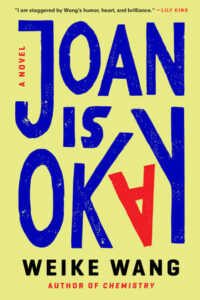
Weike Wang, Joan is Okay
Random House, January 18
I’ve been waiting for the next novel from Weike Wang since her excellent 2017 novel Chemistry, which managed to be a campus novel, a work novel, a love story, and an examination of modern consciousness all at the same time. Joan is Okay lifts us from the PhD world into the world of a busy NYC ICU, which only makes sense, but Wang’s underlying concerns of identity, family, and culture seem to be well intact here. Can’t wait to read more from her. –ET
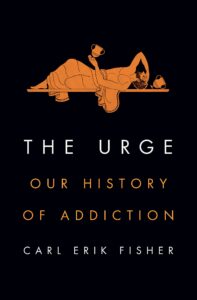
Carl Erik Fisher, The Urge: Our History of Addiction
Penguin Press, January 25
In his nonfiction debut, physician and bioethicist Carl Erik Fisher charts the history of addiction treatments through medicine, science, literature, religion, public policy, and his own alcoholism and recovery. Through a blend of memoir and research, Fisher’s created a call to reconsider how we discuss, treat, and politicize addiction. –WC
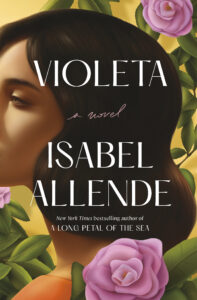
Isabel Allende, Violeta
Ballantine, January 25
The internationally acclaimed Isabel Allende’s latest book—following novels including The House of the Spirits, Of Love and Shadows, Eva Luna, Paula, and In the Midst of Winter—comes in the form of a letter from protagonist Violeta Del Valle, who, at 100, has lived through many of the major events of modern history. Allende is an extraordinary storyteller, and I’m excited to see where she takes this character. –Corinne Segal, Senior Editor
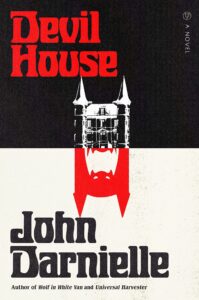
John Darnielle, Devil House
MCD, January 25
The man behind The Mountain Goats is a rising star in the literary fiction world, and with very good reason. Darnielle’s marvelously unsettling Wolf in White Van (about a reclusive and severely disfigured video game designer) and Universal Harvester (about a 90s Iowa video store clerk who discovers that someone has been modifying the VHS tapes…) were both critically acclaimed and nominated for major awards. His new novel, the deliciously titled Devil House, is the story of a once-successful true-crime writer who moves into a California house where a pair of murders took place during the “Satanic Panic” of the 1980s. Expect the unheimlich. –DS
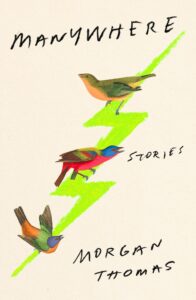
Morgan Thomas, Manywhere
MCD, January 25
So far, I’ve only read one of the stories from Thomas’ debut collection, but it was more than enough to move this one to the top of my list. Louie, the narrator of “Bump” is a trans woman who longs for a child so much that when a coworker asks if she is, Louie can’t deny it. Instead, she buys several prosthetic bumps on the internet and keeps up the illusion. The story is compelling and humane and lovely, and I can’t wait to read the whole collection, which Kirkus calls “a visionary and keenly observed debut.” –JG
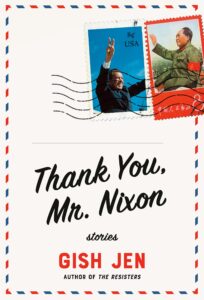
Gish Jen, Thank You, Mr. Nixon
Knopf, January 25
Gish Jen’s The Resisters was one of my favorite reads of 2021, so you better believe I’ll be snapping up her collection. Thank You, Mr. Nixon captures the 50 years since Nixon’s historic trip to China, probing US-China relations through the journeys of her characters. –ES
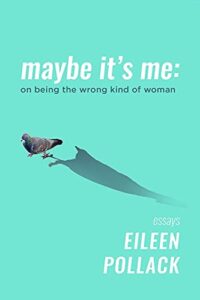
Eileen Pollack, Maybe It’s Me: On Being the Wrong Kind Of Woman
Delphinium, January 25
Too smart, too independent, too insubordinate: Eileen Pollack found herself, growing up in the 1960s, not the right kind of girl. This humorous collection of essays charts a life lived in defiance of society’s rules for women, from anecdotes about childhood to the trials of online dating in your sixties in New York City. –CS
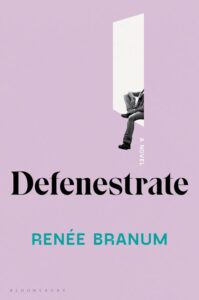
Renée Branum, Defenestrate
Bloomsbury, January 25
Branum’s dazzling debut novel combines a contemporary story of familial alienation and grief, the history of a family curse that entails untimely death via splat, and meditations on falling (prat, à la Buster Keaton; in love; from an airplane, becoming legend). Told in a series of vignettes, Defenestrate feels less fragmentary than tightly woven, and with every sentence shimmering. At points I had the sense of visiting a tiny and lovingly curated archive. The novel is lyrical and lovely and slyly funny, yet deceptively propulsive. One to stay up all night reading and immediately begin again. –JG
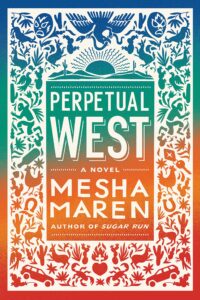
Mesha Maren, Perpetual West
Algonquin, January 25
In Maren’s follow up to her excellent, claustrophobic Sugar Run, a young couple moves from Virginia to El Paso, where they begin to unravel: Alex lured across the border to Mexico by lucha libre and love; Elana losing touch with the things that once tethered her to herself. The publisher’s description promises missionaries, wrestling matches, a cartel compound, and an investigation of “the false divide between high and low culture,” which all sounds pretty good to me. –ET
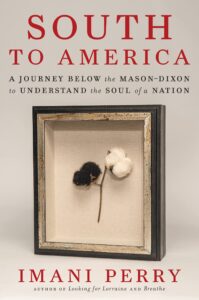
Imani Perry, South to America
Ecco, January 25
Imani Perry blends reportage, memoir, and travelogue in this introspective, probing study of the American South. Perry unpacks the stereotypical markers associated with the South, showing how the South holds the key to understanding the evolution of our nation. A guiding theme of the book shows how environment can shape people—physically, mentally, and emotionally. In the introduction, Perry writes, “Its [the South’s] legacy of racism then is… bloodier than most. But other regions are also bloody in deed. Discrimination is everywhere, but collectively the country has leeched off the racialized exploitation of the South while also denying it.” Perry’s seamlessly crafted work is a tour-de-force reckoning. –VW












